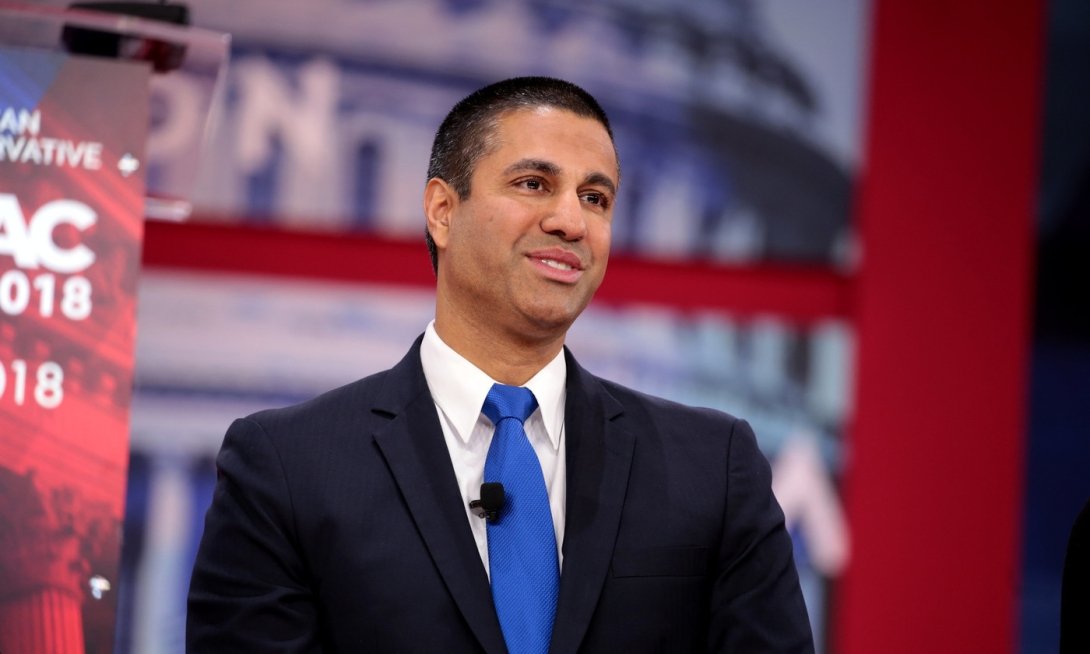Merger Lies Should Haunt Sinclair

Original photo by Flickr user Gage Skidmore
More than a month has passed since an FCC judge declared the scuttled Sinclair-Tribune merger dead as a doornail.
Grave concerns about the Sinclair Broadcast Group’s dishonesty live on, and should haunt the nation’s largest owner of local-TV stations. And FCC Chairman Ajit Pai has done absolutely nothing.
Sinclair’s shady ways
Sinclair proposed its ill-fated Tribune merger in May 2017 in a deal that would have allowed the conglomerate to reach more than 70 percent of the national audience and consolidate its hold in local markets across the country. Sinclair resisted complying with the FCC’s rules, banking instead on an industry-friendly agency (and behind-the-scenes dealings with the Trump administration) to strip away those public protections before the deal was done.
Trump’s FCC did indeed dismantle many of the rules that threatened Sinclair’s mega-merger. Still Sinclair was intransigent — and apparently deceptive.
Last July, the FCC designated Sinclair’s merger proposal for a hearing on the basis of alleged misrepresentations regarding three stations Sinclair promised to divest — including Tribune’s flagship station WGN-TV in Chicago, which Sinclair planned to sell to longtime business associate Steven Fader, with an agreement that Sinclair would remain in charge of everything from WGN’s programming to advertising sales.
According to the agency, there was evidence that Sinclair might have concealed these plans to maintain de facto control of WGN and other stations to bypass local-ownership rules. To avoid the FCC’s hearing, Tribune called off the deal in August.
FCC urged to examine Sinclair’s ‘lack of candor’
On March 5, FCC Administrative Law Judge Jane Halprin dismissed the agency’s case, concluding that a hearing would be a purely “academic exercise” after the merger parties walked away.
But Halprin also issued a strong rebuke to Sinclair, calling its alleged misrepresentations “extremely serious charges” and noting that “providing false statements to the Commission has been a basis for license revocation since the inception of the Communications Act in 1934.”
Halprin also asserted that a future FCC proceeding would be an appropriate time to determine whether Sinclair is of fit moral character to “hold any station license” and urged the agency to examine the company’s “lack of candor”.
Like all broadcasters, Sinclair must regularly seek approval from the FCC to renew its broadcast licenses. The airwaves belong to the public, and the FCC licenses this valuable resource to broadcasters that commit to serving the public and following agency rules.
By suggesting an investigation during a future license-renewal proceeding, Judge Halprin has laid out a smart course for the FCC to hold Sinclair accountable if it did indeed lie to the agency — but Chairman Pai has yet to act.
Sinclair has a long history of evading the FCC’s rules, pioneering loopholes known as sharing agreements that have allowed it to control more stations in a local market than it’s legally permitted to own. In wave after wave of media buyouts, Sinclair has consolidated newsrooms, fired journalists and replaced quality local coverage with corporate propaganda and bigoted “must-run” content. Sinclair has used its national scale to foment Islamophobia, racism and anti-immigrant sentiments — showing a blatant disregard for the communities it claims to serve.
Now Sinclair’s gone a step further by allegedly lying to the FCC to smooth the way for its takeover of Tribune. The FCC should follow Judge Halprin’s guidance at the next opportunity and investigate whether these serious claims are true. If they are, the agency should revoke all of Sinclair’s broadcast licenses.
The company’s next round of license renewals come up for review in 2020 — but the American Cable Association has already petitioned the FCC to move up those dates. The FCC should conduct an early license-renewal process to assess whether Sinclair is fit to steward the public airwaves.
No broadcaster should be able to lie to the FCC and get away with it. Judge Halprin has laid out a clear path for the FCC to exorcise the specter of Sinclair’s dishonesty. The agency should act without delay.